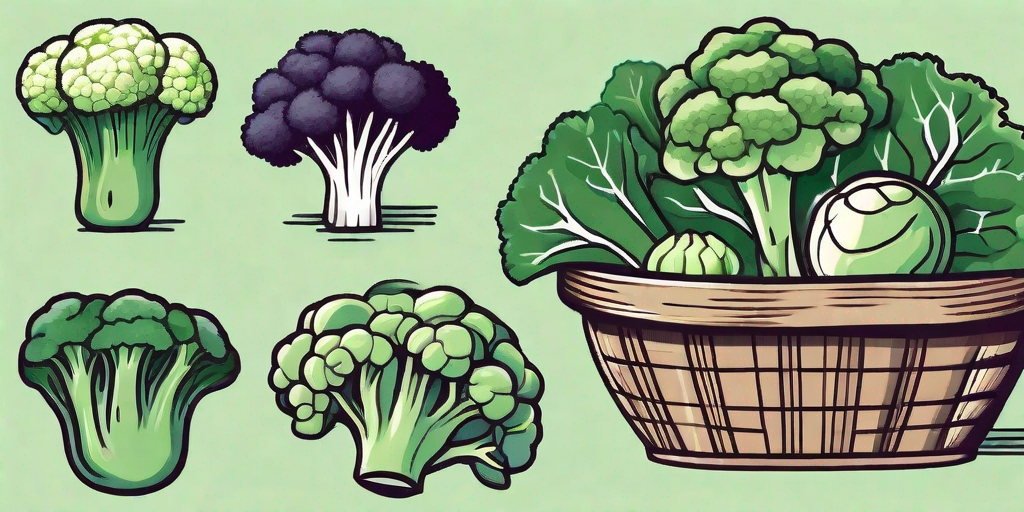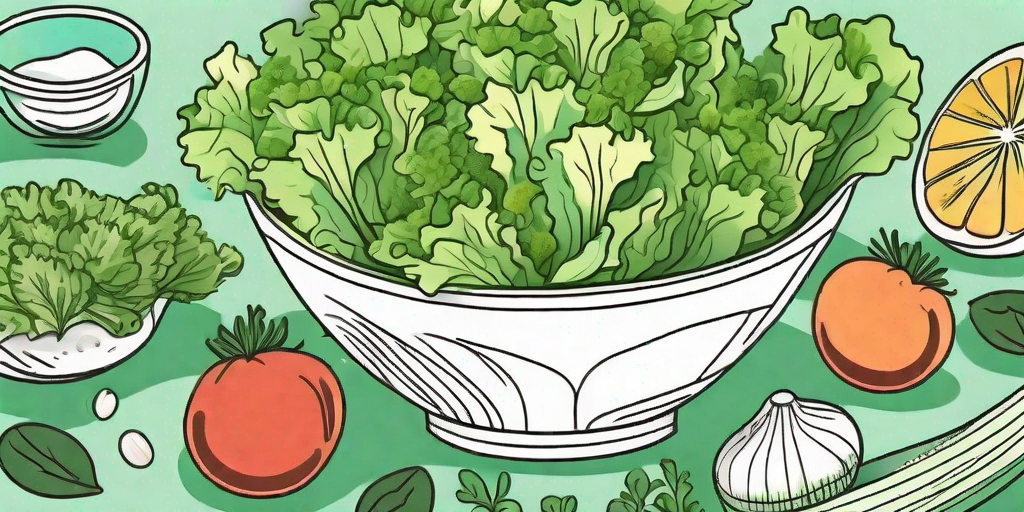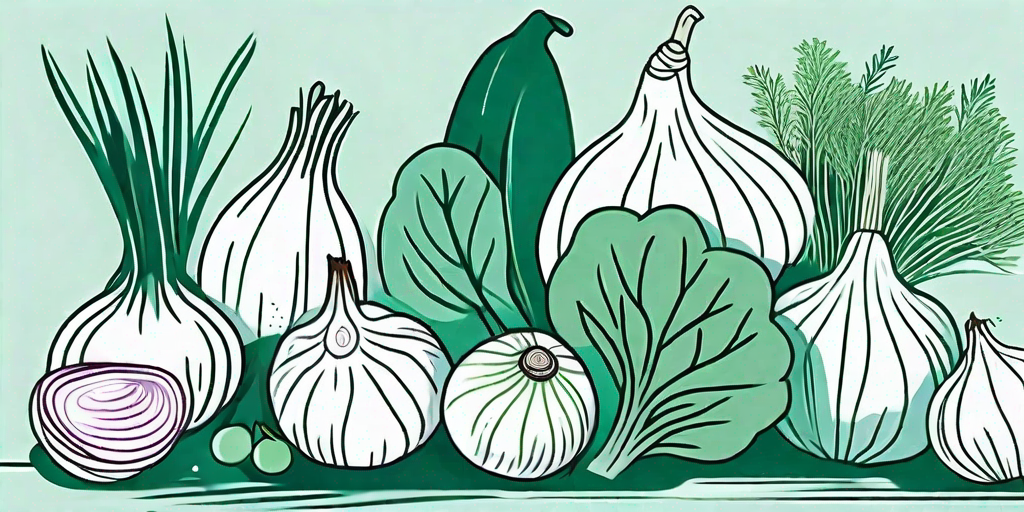
Welcome to the green side, where we celebrate all things leafy, crunchy, and oh-so-good for you. Today, we're diving into the world of cruciferous vegetables. You know, those veggies that your mom always told you to eat, but you pushed them around your plate hoping she wouldn't notice? Well, it's time to embrace them, because these greens are not only delicious but also packed with nutrients that can boost your health in a big way. So, buckle up, veggie voyagers, and let's explore the cruciferous kingdom.
What Are Cruciferous Vegetables?
Cruciferous vegetables, also known as Brassica vegetables, are a family of greens that are as diverse as they are nutritious. From broccoli to Brussels sprouts, these veggies are known for their unique, often pungent flavors and their impressive health benefits.
But what makes a vegetable cruciferous? It's all about the flower. Cruciferous vegetables are named for their cross-shaped flower petals (the word 'cruciferous' comes from the Latin word for 'cross-bearing'). But it's not just their floral flair that sets them apart. These veggies are also packed with nutrients, including fiber, vitamins C, E, and K, and a host of disease-fighting phytochemicals.
The Ultimate List of Cruciferous Vegetables
Ready to meet the members of the cruciferous clan? Here's a list of some of the most common (and some not-so-common) cruciferous vegetables:
- Broccoli
- Cauliflower
- Kale
- Brussels sprouts
- Cabbage
- Arugula
- Radish
- Turnip
- Watercress
- Bok choy
- Collard greens
- Mustard greens
- Rutabaga
- Wasabi (yes, that spicy green paste you get with your sushi!)
Each of these veggies has its own unique flavor profile and nutrient content, so it's worth trying them all to see which ones tickle your taste buds.
Health Benefits of Cruciferous Vegetables
Cruciferous vegetables aren't just tasty; they're also incredibly good for you. Here are some of the health benefits you can reap from adding more of these greens to your diet:
Loaded with Nutrients
Cruciferous vegetables are nutritional powerhouses. They're packed with fiber, which can help keep your digestive system running smoothly, and they're a great source of vitamins C, E, and K. Plus, they're low in calories, making them a great choice for those looking to maintain a healthy weight.
But that's not all. These veggies also contain a host of phytochemicals, plant compounds that have been shown to have a range of health benefits. For example, they're rich in glucosinolates, compounds that have been linked to a lower risk of certain types of cancer.
May Reduce Cancer Risk
Speaking of cancer, numerous studies have suggested that eating more cruciferous vegetables may help protect against this disease. This is largely thanks to their high glucosinolate content. When you chew cruciferous vegetables, these compounds are broken down into other compounds called isothiocyanates and indoles, which have been shown to inhibit the growth of cancer cells in test-tube and animal studies.
While more research is needed to confirm these effects in humans, the evidence so far is promising. So, why not add a little more broccoli to your plate? It's a delicious way to potentially boost your health.
How to Incorporate More Cruciferous Vegetables into Your Diet
Convinced of the power of cruciferous vegetables? Great! Now, let's talk about how to get more of them into your diet. Here are some tips:
Make Them the Star of Your Meal
Cruciferous vegetables don't have to be relegated to the side of your plate. Why not make them the main event? Try roasting Brussels sprouts with a little olive oil and sea salt for a delicious and nutritious main dish. Or, whip up a stir-fry with bok choy, broccoli, and your favorite protein for a quick and easy dinner.
And don't forget about breakfast! Kale and collard greens make a great addition to your morning smoothie, adding a nutrient boost without overpowering the other flavors.
Snack on Them
Who said snacks have to be unhealthy? Raw broccoli and cauliflower make a great snack when paired with a tasty dip like hummus. Or, try roasting kale with a little olive oil and sea salt for a crunchy, chip-like snack.
And let's not forget about radishes. These crunchy, slightly spicy veggies make a great addition to your snack rotation. Try them sliced and sprinkled with a little sea salt for a simple and satisfying snack.
FAQs
Are cruciferous vegetables bad for your thyroid?
Some people worry about eating cruciferous vegetables because they contain goitrogens, compounds that can interfere with thyroid function. However, you'd have to eat a very large amount of these veggies for them to have an effect. Plus, cooking them reduces their goitrogen content. So, unless you have a thyroid condition and your doctor has advised you to avoid these vegetables, there's no need to shun them.
Can you eat too many cruciferous vegetables?
While it's always possible to have too much of a good thing, it's unlikely that you'll overdo it with cruciferous vegetables. These veggies are low in calories and packed with nutrients, so they're a great addition to a balanced diet. Just remember to mix things up and eat a variety of veggies to get a range of nutrients.
What's the best way to cook cruciferous vegetables?
There's no one "best" way to cook cruciferous vegetables. It really depends on your personal preference. Some people love them raw, while others prefer them cooked. Just keep in mind that overcooking can reduce their nutrient content, so try to keep cooking times to a minimum. Steaming, roasting, and sautéing are all great options.
So, there you have it. A deep dive into the world of cruciferous vegetables. Now, go forth and get your greens on!











